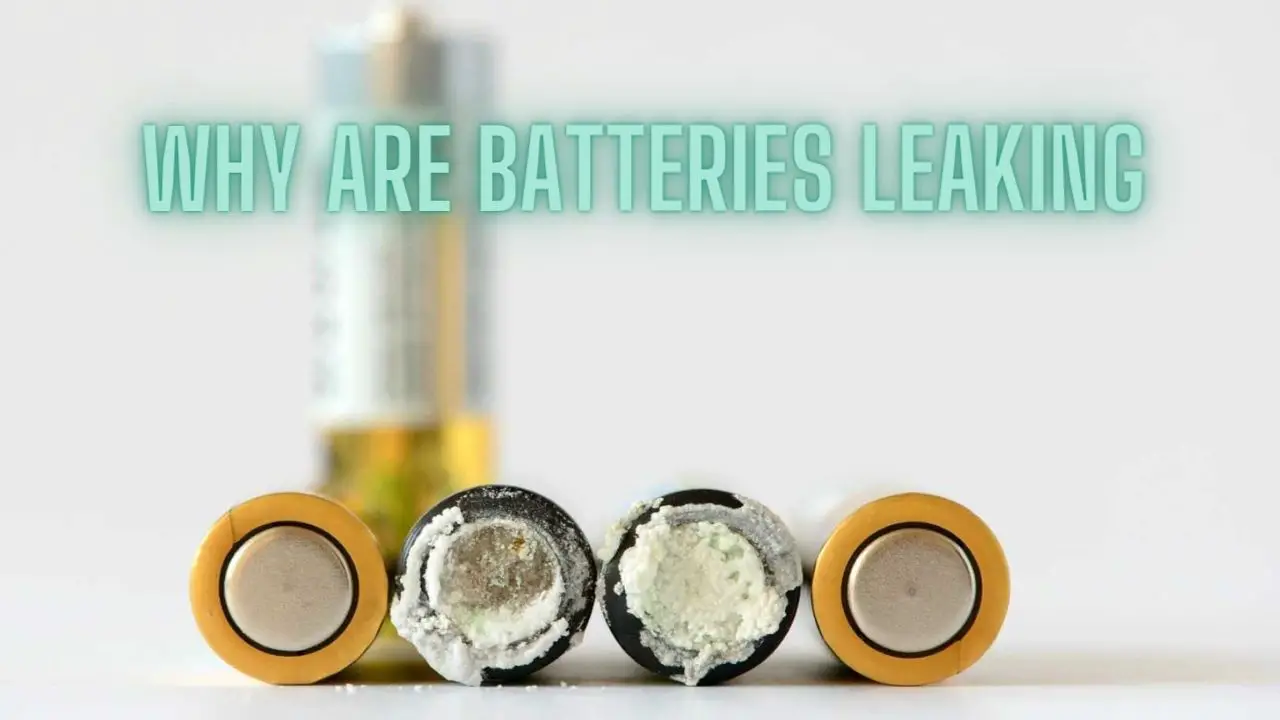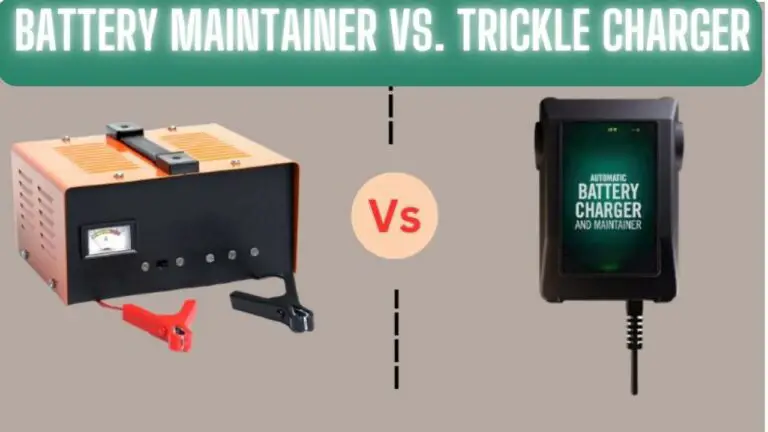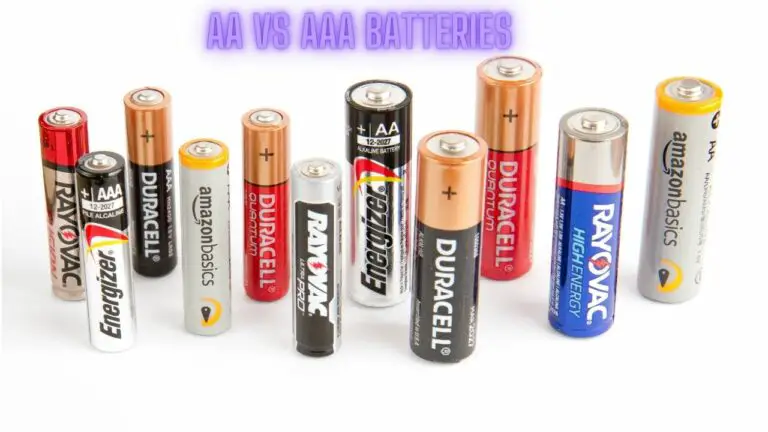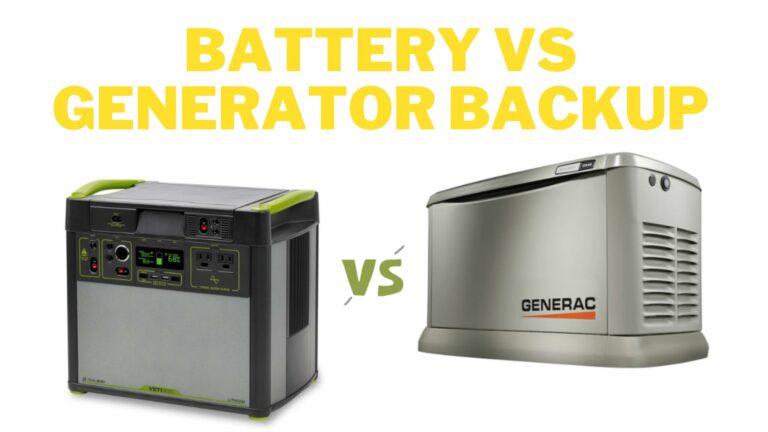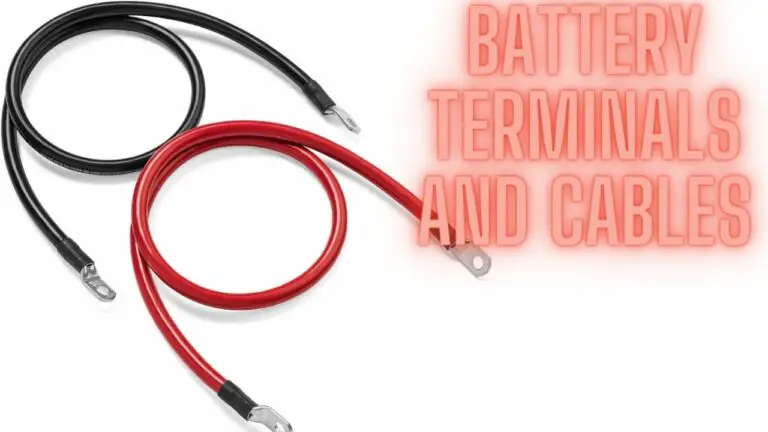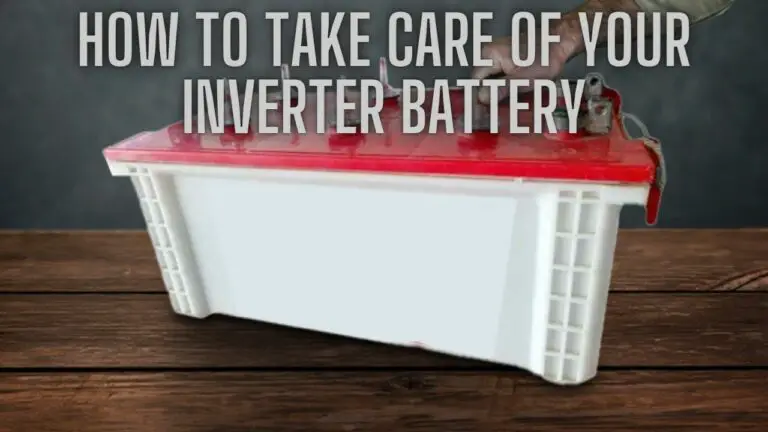Why Are Batteries Leaking? Exploring the Causes and Prevention
Introduction
Battery leakage is a common issue that can occur with various types of batteries, including alkaline, nickel-metal hydride (NiMH), and lithium-ion batteries. When a battery leaks, it releases corrosive electrolytes, such as potassium hydroxide or sulfuric acid, which can damage electronic devices and pose a safety hazard if they come into contact with skin or eyes.
Understanding the causes of battery leakage and how to prevent it is essential for maintaining the integrity of your electronic devices and ensuring the safety of yourself and others. In this guide, we will explore the reasons why batteries leak, the types of batteries prone to leakage, the effects of battery leakage, and tips for preventing and cleaning up battery leakage. By following these guidelines, you can protect your devices and prolong the lifespan of your batteries.
What Causes Battery Leakage?
Battery leakage occurs when the seals or casing of a battery are compromised, allowing the electrolyte solution inside the battery to leak out. Several factors can contribute to battery leakage:
- Corrosion of Battery Components: Over time, the internal components of a battery, such as the cathode, anode, and separator, can corrode or degrade. This corrosion weakens the seals and casing of the battery, making it more prone to leakage.
- Overheating: Excessive heat can accelerate the chemical reactions inside a battery, leading to increased pressure and potential damage to the casing or seals. Batteries subjected to high temperatures, such as those left in direct sunlight or exposed to heat sources, are more likely to leak.
- Improper Storage Conditions: Storing batteries in environments with high humidity or extreme temperatures can accelerate corrosion and degradation of battery components. Moisture and temperature fluctuations can weaken the seals and casing, making leakage more likely.
- Manufacturing Defects: In rare cases, batteries may leak due to defects in the manufacturing process. Poor quality control or faulty assembly can result in weakened seals or incomplete sealing of the battery casing, increasing the risk of leakage.
It’s important to note that different types of batteries may have different mechanisms for leakage. For example, alkaline batteries are prone to leakage when they are depleted or exposed to high temperatures, while rechargeable batteries like NiMH or lithium-ion batteries may leak if overcharged or subjected to improper charging conditions.
Understanding these potential causes can help you take proactive measures to prevent battery leakage and prolong the lifespan of your batteries.
Types of Batteries Prone to Leakage
- Alkaline Batteries: Alkaline batteries are commonly used in a wide range of household devices such as remote controls, toys, and flashlights. When alkaline batteries become depleted or exposed to high temperatures, they are more prone to leakage. The potassium hydroxide electrolyte inside alkaline batteries can corrode the battery casing, leading to leakage.
- Carbon-Zinc Batteries: Carbon-zinc batteries, also known as zinc-carbon batteries, are similar to alkaline batteries but typically have a shorter lifespan and lower capacity. Like alkaline batteries, carbon-zinc batteries can leak when depleted or exposed to heat.
- Nickel-Cadmium (NiCd) Batteries: NiCd rechargeable batteries are known for their high energy density and long cycle life. However, they can leak electrolyte if overcharged or subjected to improper charging conditions. Overcharging can cause the battery to generate excess heat and pressure, leading to leakage.
- Nickel-Metal Hydride (NiMH) Batteries: NiMH rechargeable batteries are widely used in portable electronics such as digital cameras, cordless phones, and power tools. While NiMH batteries are less prone to leakage compared to NiCd batteries, they can still leak if overcharged or exposed to extreme temperatures.
- Lithium-Ion (Li-ion) Batteries: Li-ion batteries are commonly used in smartphones, laptops, and other portable electronic devices due to their high energy density and rechargeable nature. While Li-ion batteries are generally less prone to leakage compared to other battery types, they can still leak electrolyte if damaged or exposed to extreme conditions such as high temperatures or physical impact.
It’s important to handle all types of batteries with care and follow proper storage and usage guidelines to minimize the risk of leakage. Storing batteries in a cool, dry place and avoiding overcharging can help prevent leakage and prolong the lifespan of your batteries.
Effects of Battery Leakage
- Damage to Electronic Devices: Battery leakage can cause significant damage to electronic devices such as remote controls, toys, flashlights, and other gadgets. The corrosive electrolyte solution released from leaking batteries can corrode circuitry, contacts, and other components inside electronic devices, rendering them inoperable.
- Malfunctioning Devices: When battery leakage comes into contact with sensitive electronic components, it can cause devices to malfunction or stop working altogether. Corrosion of electrical connections or short circuits can disrupt the normal functioning of electronic devices, leading to erratic behavior, loss of functionality, or complete failure.
- Safety Hazards: Battery leakage poses safety hazards, especially if the corrosive electrolyte solution comes into contact with skin, eyes, or mucous membranes. Contact with leaked electrolyte can cause irritation, burns, or chemical injuries. Ingestion of leaked electrolyte can lead to gastrointestinal irritation, nausea, vomiting, and other health complications.
- Environmental Damage: Battery leakage can also have environmental consequences if leaked electrolyte contaminates soil, water, or air. The corrosive nature of the electrolyte solution can harm plants, animals, and ecosystems, leading to ecological imbalances and environmental degradation.
- Financial Loss: Dealing with the aftermath of battery leakage, including repairing or replacing damaged electronic devices, can result in financial losses. Depending on the extent of the damage, repair costs or replacement expenses for affected devices can add up, impacting your budget.
Overall, battery leakage can have widespread negative effects on electronic devices, personal safety, environmental health, and financial well-being. Taking proactive measures to prevent battery leakage and promptly addressing any leaks that occur can help mitigate these effects and protect your belongings, health, and the environment.
Preventing Battery Leakage
- Use High-Quality Batteries: Invest in high-quality batteries from reputable manufacturers known for their reliable construction and quality control standards. Avoid using cheap or generic batteries, as they may be more prone to leakage due to inferior materials or manufacturing processes.
- Check Expiration Dates: Check the expiration dates on batteries before purchasing them, and avoid using expired batteries. Expired batteries may be more likely to leak or perform poorly, as their internal components may degrade over time.
- Store Batteries Properly: Store batteries in a cool, dry place away from direct sunlight and extreme temperatures. Avoid storing batteries in humid environments, as moisture can accelerate corrosion and degradation of battery components.
- Remove Batteries from Devices: If you don’t plan to use a device for an extended period, such as a remote control or flashlight, remove the batteries to prevent leakage. Leaving batteries in devices for long periods can increase the risk of leakage, especially if the device is not used regularly.
- Avoid Mixing Battery Types: Avoid mixing different types or brands of batteries in the same device, as mismatched batteries can cause uneven discharge and increase the risk of leakage. Stick to using batteries of the same type, capacity, and brand for optimal performance and safety.
- Replace Old Batteries Promptly: Replace batteries promptly when they become depleted or show signs of leakage, swelling, or corrosion. Do not attempt to use damaged or leaking batteries, as they can pose safety hazards and damage electronic devices.
- Monitor Charging Practices: If using rechargeable batteries, follow proper charging practices to prevent overcharging, which can lead to leakage or other safety issues. Use a compatible charger designed for the specific type of battery and avoid leaving batteries on chargers for extended periods after they are fully charged.
- Inspect Devices Regularly: Periodically inspect devices for signs of battery leakage, such as corrosion, discoloration, or bulging batteries. If you notice any signs of leakage, remove the batteries immediately and clean the affected area following proper safety precautions.
By following these preventive measures, you can reduce the risk of battery leakage and prolong the lifespan of your batteries, ensuring safe and reliable performance in your electronic devices.
Cleaning up Battery Leakage
Cleaning up battery leakage is essential to prevent further damage to electronic devices and ensure personal safety. Here’s how to clean up battery leakage effectively:
- Safety Precautions:
- Put on protective gloves, safety goggles, and a face mask to protect yourself from exposure to corrosive electrolyte solution.
- Work in a well-ventilated area to avoid inhaling fumes from the leaked electrolyte.
- Keep children and pets away from the cleanup area to prevent accidental exposure.
- Remove Batteries:
- If the battery is still in the device, carefully remove it using gloves or non-conductive tools to avoid contact with the leaked electrolyte.
- Dispose of leaking or damaged batteries properly according to local regulations for hazardous waste.
- Cleanup Supplies:
- Gather cleaning supplies, including paper towels, cotton swabs, distilled water, mild detergent or vinegar, and isopropyl alcohol (rubbing alcohol).
- Cleanup Process:
- Carefully wipe away any visible leakage or corrosion on the battery compartment and surrounding areas using paper towels or cotton swabs.
- Dampen a clean cloth or cotton swab with distilled water and gently wipe the affected areas to remove any remaining residue.
- If stubborn corrosion remains, dampen a cloth or cotton swab with a mixture of mild detergent or vinegar diluted in water and gently scrub the affected areas.
- Rinse the cleaned areas with clean water to remove any detergent or vinegar residue.
- Dry the cleaned areas thoroughly with paper towels or allow them to air dry completely before reassembling the device.
- Disinfection:
- To disinfect the cleaned areas and prevent bacterial growth, dampen a cloth or cotton swab with isopropyl alcohol and wipe the affected areas.
- Allow the areas to air dry completely before reassembling the device.
- Dispose of Cleaning Materials:
- Dispose of used cleaning materials, such as paper towels and cotton swabs, properly according to local regulations.
- Inspect and Test:
- After cleaning up the leakage, carefully inspect the device and battery compartment for any signs of remaining corrosion or damage.
- Before reinstalling the batteries, test the device to ensure that it functions properly and safely.
By following these cleanup steps, you can effectively remove battery leakage and corrosion from electronic devices, preventing further damage and ensuring safe operation. If you encounter stubborn corrosion or are unsure about the cleanup process, consider seeking professional assistance or contacting the manufacturer for guidance.
FAQS
What causes batteries to leak?
- Battery leakage is often caused by the corrosion of battery terminals, which can occur when the positive and negative terminals react with each other or with other substances inside the battery compartment. Other factors, such as heat, old age, low-quality batteries, and overdischarge, can also contribute to leakage.
Are all types of batteries prone to leakage?
- While battery leakage can occur with various types of batteries, it is more commonly associated with alkaline batteries. Other types, such as NiMH (Nickel-Metal Hydride) and Li-ion (Lithium-ion) batteries, are generally less prone to leakage.
How can I prevent battery leakage?
- To prevent battery leakage, consider the following:
- Use high-quality batteries from reputable brands.
- Check expiration dates before using batteries.
- Store batteries in a cool, dry place away from extreme temperatures and sunlight.
- Remove batteries from unused devices if they won’t be used for a while.
- Avoid mixing different battery types, brands, or ages in the same device.
- Replace batteries promptly when they show signs of power decline.
- Regularly inspect batteries for physical damage.
Can a leaking battery be safely cleaned, or should it be disposed of immediately?
- It’s generally safer to dispose of leaking batteries rather than attempting to clean them. Battery leakage can contain corrosive substances that can be harmful. Follow local regulations for proper battery disposal.
Are leaking batteries dangerous?
- Leaking batteries can be hazardous. The leaked substance may contain corrosive chemicals that can damage the device and pose a health risk if it comes into contact with skin or eyes. It’s important to handle leaking batteries with care.
Can battery leakage damage electronic devices?
- Yes, battery leakage can damage electronic devices. The corrosive substances from the leaking battery can corrode electrical contacts and circuitry, rendering the device non-functional.
Is it safe to store batteries in a refrigerator or freezer to prevent leakage?
- Storing batteries in a refrigerator or freezer is not recommended. While it may slow down the chemical reactions inside the battery, condensation can occur when you remove the batteries from cold storage, potentially leading to other issues.
What should I do if I find a leaking battery in a device?
- If you discover a leaking battery in a device, follow these steps:
- Wear protective gloves and eyewear.
- Remove the device’s battery compartment cover.
- Safely remove the leaking battery, being cautious not to touch the leaked substance.
- Dispose of the leaking battery properly.
- Clean the battery compartment with a mixture of water and vinegar or lemon juice to neutralize any corrosion.
- Allow the compartment to dry thoroughly before inserting new batteries.
Can I prevent all battery leakage issues by using rechargeable batteries?
- While rechargeable batteries, such as NiMH and Li-ion, are generally less prone to leakage than alkaline batteries, they can still leak if overdischarged or mishandled. Proper care and maintenance are essential for all types of batteries to prevent leakage.
Conclusion
In conclusion, battery leakage is a common issue that can be prevented by using high-quality batteries, storing them properly, and avoiding common mistakes like mixing battery types or using expired batteries. Taking care of your batteries and being vigilant can help ensure that your devices remain safe and functional.

